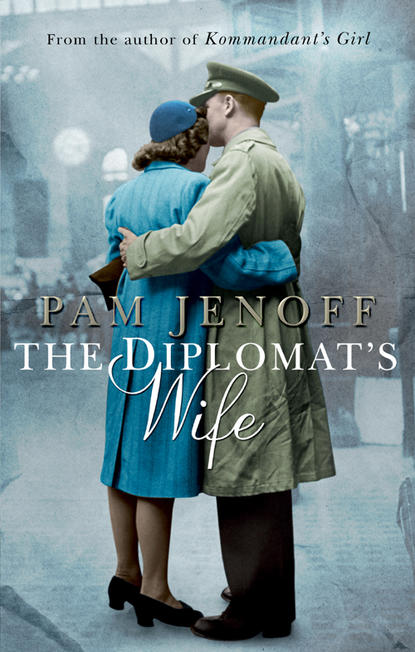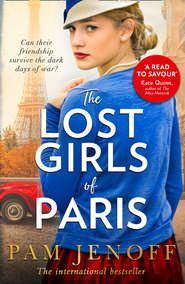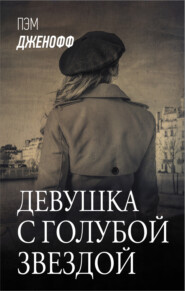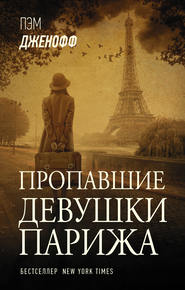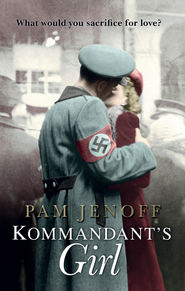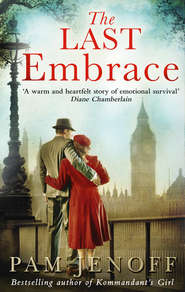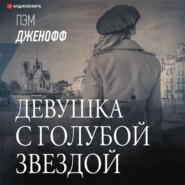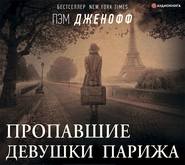По всем вопросам обращайтесь на: info@litportal.ru
(©) 2003-2025.
✖
The Diplomat's Wife
Настройки чтения
Размер шрифта
Высота строк
Поля
“This used to be a formal dining room,” Dava explains. “The whole camp is housed on the grounds of Schloss Leopoldskron, which was one of the Hapsburg palaces. The Nazis confiscated it from its previous owners, and we took it from them. The palace is very beautiful, as are the grounds. I’ll give you a tour when you are well enough.”
“Thank you.” I take another sip of tea.
Dava points upward. “If you look there, you can see the Baroque influence. The detail is really quite extraordinary.”
“I can’t …” I begin, then hesitate. “That is, I can’t see it.”
“What do you mean?” Dava’s voice is heavy with concern. “Did the Nazis do something? A blow to the head, perhaps? Or did you fall?”
I shake my head. “Nothing like that,” I reply quickly, though of course they had struck me in the head many times. “It’s just that I am very nearsighted. And my glasses were confiscated when I was arrested.”
“Oh, my goodness, why didn’t you say something? We have a whole boxful of glasses in the supply room.” What happened to their former owners? I wonder. Dava continues, “As soon as you’ve finished eating, I’ll bring you a few pairs to try out. Now, let’s give the soup another go.” She takes the teacup from me and puts it back on the tray, then picks up the bowl once more. My stomach rumbles with anticipation. I swallow the first mouthful Dava spoons for me, savoring the warm, salty broth as it runs down my throat. Neither of us speak as she feeds me a second spoonful, then a third. “Let’s slow down for a minute and see how that sits,” she says.
I open my mouth to start to protest. It is the first fresh food I have tasted in months and I do not want to stop. But I know that she is right. I lean back and look around the ward. “I’ve been wondering, the rest of the room looks so crowded, but there is no one here.” I gesture to the empty bed beside my own.
“You mean, why are you being kept separate from the others?”
“Yes.”
Dava hesitates. “The others are from the camps.”
“I don’t understand. You said I was in Dachau. Wasn’t that a camp?”
“Yes, of course. But where you were kept, in the prison, you were not in the general population with the other women.” I study Dava’s face. Does she know why I was in that special prison cell? “The conditions in the general populations of the camps like Dachau were very bad,” she adds.
“Worse than where I was?” I try to imagine what could be more horrible than the beatings, starvation and isolation I endured.
“Not necessarily worse, but different. There were lots of diseases, dysentery, typhus.” Typhus. My mother died of typhus in the Kraków ghetto. I see her sore-ravaged body, hear her crying out in the delirium brought on by high fever. “We didn’t want to risk you catching something while you were weak from the surgery and infection, so we kept you as separate as we could. That’s about to change, though. We’re expecting another transport and we’ll likely have to use all of the beds then, so you’ll be getting a neighbor. But enough about that. Let’s have some more soup.”
As Dava spoons the broth for me, I look over her shoulder. Most of the other women lie still in their beds. I am suddenly aware of noises I hadn’t heard before, low moans, the whirring and beeping of medical equipment. There is another smell, too: the faint, metallic odor of blood.
I turn back to Dava, studying her face with interest. “Where are you from?”
“Russia originally, but my family moved to Vienna when I was a child. My parents died in Buchenwald.”
“You’re Jewish?” I cannot keep the surprise from my voice. With her ample figure, Dava does not look like she spent time in the camps.
She nods. “I was in the south of France studying languages when the war broke out. My family wouldn’t hear of me coming back. So I signed up as a nurse with the Allies, made my way back to Austria as soon as I was able. But my parents, our house, it was all gone.”
Mine, too, I think, my eyes burning.
“All gone,” Dava repeats a minute later. But her tone is bright and I realize as she sets the bowl back down on the tray that she is talking about the soup now. Gone. Suddenly I am back in my cell without any food, wondering when the next meal will come, whether I will eat again that day. Panic shoots through me. Dava, accustomed to dealing with survivors, seems to read my thoughts. “Don’t worry.” She pats my shoulder. “The Red Cross supplies our kitchen. There’s plenty of soup, and many other kinds of food as well. If you’re still hungry and manage to hold down what you’ve just eaten, I can bring you bread in an hour. But you have to stop eating for now. It’s for your own good.”
I lean back, relieved. “Thank you.”
“My pleasure.” Dava stands up. “Now I need to go check on some of the other patients. I want you to get some rest. You need to regain your strength.”
My eyelids suddenly seem to grow heavier. “I am a little sleepy,” I admit.
“It’s the food. You rest. Sleep is good for your healing.” Dava picks up the tray and starts to leave.
“Dava,” I call after her, struggling to sit up again.
She turns back. “Yes?”
“I have another question.” I pause, picturing the soldier hovering over me in prison. “You said that the Americans brought me in. Do you know any of their names?”
Dava’s brow furrows. “I’m afraid not. Why do you ask?”
“There was one soldier I remember helping me before I passed out. I think he was called Paul.” My heart flutters as I say his name aloud.
“What was his surname?”
I hesitate, trying to remember. There had been dark writing on the green lapel of his uniform. I close my eyes, straining without success to read it from memory. “I don’t know.”
“There are thousands of American soldiers in Europe right now, liberating the camps,” she replies gently. My heart sinks. “I’ll ask around when the transports come in from the various camps, but I wouldn’t count on too much. Now, you rest. I’ll be back when I finish my rounds.”
I sink back in bed, watching Dava as she walks away. Then I look around the ward once more. This is not a dream. I really have been saved. Exhaustion overcomes me and I lean my head back against the crisp white sheets, drifting to sleep.
Sometime later, I open my eyes. How much time has passed? The ward is nearly dark now, illuminated only by a beam of moonlight that stubbornly makes its way through the drawn curtains behind me. The room buzzes with the thick, labored breathing of sick women trying to sleep. In the distance, I hear someone crying softly.
I swallow against the dryness in my throat. Pushing myself up to a sitting position, I reach for the glass on the table beside my bed, which Dava left half full of water. I take a sip, and as I set the glass down I notice several metal objects on the far side of the nightstand that were not there before. Glasses! Curious, I reach over and pick up a pair. I put them on but the room remains blurry. They are too weak. Quickly I try the next pair, which are weaker than the first. Disappointment rises in me as I take them off. What if none work for me? The lenses in the third pair are too strong, making my temples ache when I try to focus. I look at the table once more. Only two pairs left to try. Are there more, if none of these are right? I pick up the next pair, holding my breath as I put them on. The room suddenly comes into focus. They are nearly perfect. I can see again!
I turn toward the window, my side aching from the sudden movement. Pulling back the curtains, I gasp. Majestic, snow-capped mountains line the horizon, their jagged peaks climbing to the star-filled sky. The Alps, I realize. Goose bumps form on my arms. A wide lake sits at the base of the mountains, reflecting their vistas in its glasslike surface.
I stare up at the mountains again, blinking. It is hard to believe that such beauty still exists. What am I doing in this place? How have I been lucky enough to come here, to be alive, when so many others are not? Tears fill my eyes. Should I pray, thank God? I hesitate. I stopped believing long ago, the day I saw my father hanged in the main square of our village for sneaking food to a boy the Nazis had wanted to starve as punishment for stealing bread. I should have died, too, that night on the bridge, or in prison. But I am here, and I cannot escape the sense that some force, something larger than myself, has helped me to survive.
I take one last look at the mountains, then let the curtains fall back into place. I start to lie down once more, then stop suddenly. A young woman is in the bed beside mine. They must have brought her in while I was asleep.
“Hello?” I whisper. She does not respond. Her breathing is shallow, and I wonder if she is unconscious. I lean in closer and study her face. She looks about my age, though she is so emaciated that it is hard to tell for certain. Her high cheekbones protrude against her skin as though they might break through at any second and her eyes twitch beneath paper-thin lids. Her hair has been shorn so close that bald patches of scalp shine through.
I scan the room, hoping to see Dava or one of the other nurses to ask about the girl. But the floor is empty. I look down at the girl once more. Her fingers clutch the edge of the pillow, as though someone might try to take it away. The blanket has fallen from her shoulders, revealing a patch of pale collarbone above her hospital gown. I reach over and pull up the blanket to cover her. Out of the corner of my eye, I notice a clipboard on the edge of her bed. Carefully, so as not to disturb her, I pick it up, scanning the top sheet. It is a medical chart of some type, with many long, unfamiliar words written in English. At the top of the page, I can make out a single word: Rose.
“Rose,” I say aloud, setting down the clipboard and looking back at the girl’s face. Her eyes flutter beneath their lids. I repeat her name. Slowly, her eyes open and she stares at me, blinking. “Hello,” I greet her in Polish. When she does not respond, I switch to Yiddish. “I’m Marta.” The girl does not respond but continues to stare at me with large, almond-shaped violet eyes. I suddenly recall my own confusion at waking up here. She must be terribly afraid. “You’re safe,” I whisper quickly, remembering how Dava comforted me earlier. “This is a refugee camp run by the Allies.” She still does not answer and for a second, I wonder if she is unfriendly. Just then, Rose reaches out her hand across the space between our beds. I take her thin, burning fingers in my own. “I’m sure you’ve been through some really awful experiences. Me, too. But that’s all over now.” I squeeze her hand gently. “We’re safe now. We’re in a good place and it’s only going to get better, I promise. Do you understand?” Rose does not answer but closes her eyes once more.
I study Rose’s face, wondering if waking her had been a mistake. Should I call for a nurse? She does not seem to be in any distress. I lay back in my own bed, still holding Rose’s hand. I wish that it was morning so I could ask Dava where Rose came from, what had happened to her.
I think then of the bright stars above the mountaintops. Too tired to sit up again, I crane my neck upward to see them. Through the break in the curtains, I catch a glimpse of a star. Do I dare to wish on it as I did when I was little? I hesitate. It seems greedy to ask for anything when I should be grateful just to be alive. Still, I cannot help but wonder what I should wish for, what life has in store for me now that I have survived.
I turn to Rose to tell her about the mountains. But she is breathing evenly now, her expression peaceful. I will not wake her again. There will be time to show her tomorrow. Still holding Rose’s hand, I lie back and gaze up at the stars once more.
CHAPTER 3
We sit on the terrace behind the palace, Dava and I on one of the benches, Rose in her wheelchair close beside us. Rose reads aloud in English from Little Women, the book she holds in her lap. “‘I know I do—teaching those tiresome children nearly all day, when I’m longing to enjoy myself at home …’”
“Those sisters sure can complain,” I interrupt in Yiddish.
“Marta …” Dava shoots me a warning look.





